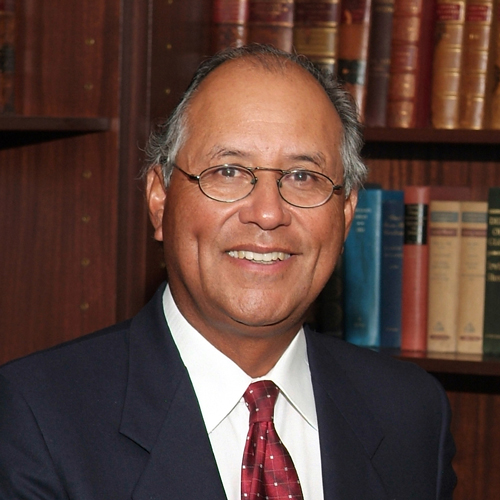Paola Nuñez will not be kept quiet. She was only twelve years old when she began her acting career in theatre and just sixteen when she made her television debut. Now, she is a renowned actress of international fame, writer, and producer in the world of telenovelas. In an exclusive HE interview, the Mexican actress is vocal about the stereotypes that plague roles for Hispanic actresses and her hopes to change their on-screen portrayal. She recently took her career to the United States via Telemundo’s hit Reina de Corazones and sits down with us to talk telenovelas, ambitions, and petty theft.

What got you into acting?
I started acting as a little girl. I was very, very shy growing up, and I always felt trapped inside this shy girl. I wanted to be outgoing, fun, and crazy, and the only way I could express that was by doing this wacky character. I discovered I could just hide behind a character and feel comfortable in that space. In 1998, I moved from Tecate, Mexico to live with my cousin in Mexico City. I studied acting and started working in commercials before getting into telenovelas.
What’s it like being an actress in a telenovela living in Mexico?
Telenovelas are huge in Mexico. It is more likely that two Mexican people have seen the same telenovela than the same movie. It’s funny, nobody knows you if you’re in movies, but if you do telenovelas, everyone knows you. They think they really know you, too! They laugh and cry with you because the soaps are all about being overly dramatic.
What is it about telenovelas that captivates that audience?
Working people just want to come home and watch them as a kind of catharsis—so they can relax and so they can feel. When I see people on the street, they just want to hug me. In this genre, the leading lady is always the suffering victim, and she’s always crying. Viewers love that.
Can you pinpoint the moment of your success in Mexico?
Money was a huge struggle starting out. I remember ransacking my cousin’s apartment just to find some spare change. I used to go to this one supermarket for years. When I first got there, I actually stole raisins because I didn’t have enough money to pay for them. They caught me, and it was so embarrassing. I never did it again. Then in 2001 I was at the same supermarket and suddenly, everyone was saying “Hi” to me and calling me by my name—even the cashier and the shelf stocking man recognized me from TV! That’s when I knew I made it.
You recently made your move into the United States market. What went into that decision?
I think Mexico is great, but it’s not Hollywood. Mexico is small, and I’m fed up with TV talking about drug dealers. I wanted to do something I really enjoyed. When I decided to make the move, everyone was telling me I was crazy to want to start from zero—from scratch. I just thought, “I don’t give a damn.” I’m at the point in my career where I have to come out of my comfort zone and do something else. I have to try without regrets.
You’ve acted, produced, and dabbled in writing. What topics or messages are you looking to portray in your roles?
I love portraying struggle—the constant pain of trying to be better and the pressure that society puts on us to change who we are. Growing up, I was constantly told that I had to change who I was. I love the phrase, “We suffer by what the mind tells us.” I think that showing suffering causes us to consider how we can progress. Talking about happiness and being nice to each other is great but can’t really teach you to change. We each have a dark side, and we are fighting with it all the time. I guess I like writing about inner demons.
“They try to keep us quiet in Mexico, but I’m not going to be quiet about it … I want to see women in the industry show they can have success without a man.”
Is there a role that you’ve done that really embodies that?
The movie I produced, Dariela los Martes. The main character was based on my suffering. We decided we didn’t want the movie to be about romance. It started with the concept of two people just seeing each other once a week, so they wouldn’t fall in love. But, as I started to write about this girl, I developed chronic insomnia. Most people don’t know how difficult insomnia is. You literally get sick because of it. I just started to write about that, and that’s how the movie slowly became about how insomnia can ruin a relationship.
Why is it important for you to act in roles that portray strong women?
I love strong, courageous, independent, badass women. That’s the kind of woman I see every day. That’s the woman I admire and want to be. One of my favorite roles is an assassin in the upcoming Fox Telemundo miniseries Cien Años de Perdón. I love her because she’s like the girl next door. She could be eating at McDonald’s next to you, and you wouldn’t know that she just killed a man. I just love that kind of role.
What do you want to see for Hispanic women in the industry?
Women in Mexico are still represented as submissive. I know we’re not that any more at all. Women in Mexico are independent, working women. They are gaining power. By displaying these submissive, victimized women, it’s showing a society doesn’t want to give women power. They try to keep us quiet in Mexico, but I’m not going to be quiet about it. I want to make a difference by portraying a different kind of leading lady—not just the victim, not the girl that’s going to die if she doesn’t have her man, but a strong woman who can have her own dreams. I want to see women in the industry show they can have success without a man.
What’s the biggest challenge that comes with that?
I feel women aren’t culturally portrayed often enough as we really are. Everything’s a cliché. I remember reading a script that offended me so much, I couldn’t even finish it. There was a scene with an American and a Mexican during Christmas. The Mexican woman was putting taco ornaments on a Christmas tree. The man asked what she was doing, and she said, “That’s what we do in Mexico, we put little tacos on the tree.” I was like, “Come on, really?! We just don’t do that!” People still see us as the serape-wearing, taco-eating Mexican. We’re so much more. I want to see women who truly portray the Hispanic girl. There’s more to us than tequila and tacos.

